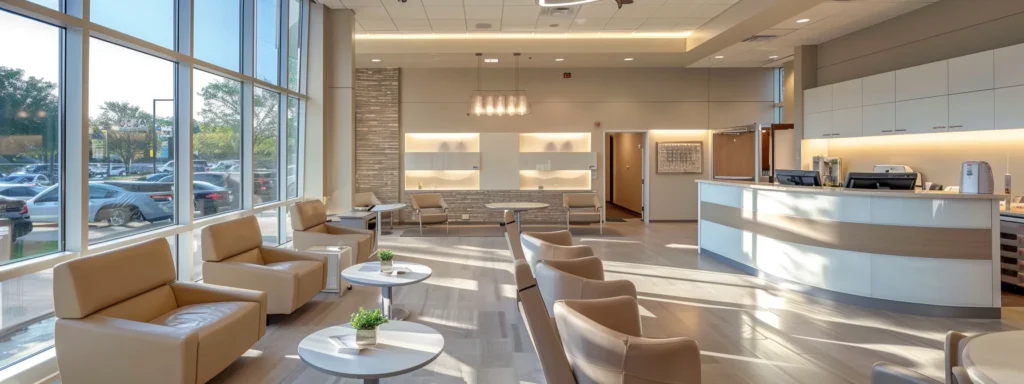EMDR therapy offers a new approach to depression treatment by processing underlying traumatic memories that contribute to depressive symptoms. Joseph Gleed’s 20+ years of EMDR expertise demonstrates how this method addresses depression’s root causes beyond traditional treatments.
You know how depression treatment has pretty much been the same for years? Antidepressants, talk therapy, maybe some lifestyle changes. But here’s the thing that’s really exciting about what’s happening at Renova Wellness & Consulting in Riverton. They’re using EMDR therapy to help people with depression in ways that traditional treatments just can’t match.
With Joseph Gleed, LCSW, CCTP, CGP’s specialized clinical trauma expertise and extensive EMDR experience, this innovative approach targets the traumatic experiences and negative beliefs that often fuel depression, creating lasting emotional relief through bilateral stimulation and memory reprocessing.
Understanding Why Depression is So Complicated
Let’s be honest, depression isn’t just feeling sad for a few days. It’s this complex web of brain chemistry, past experiences, and current life stressors all tangled up together. That’s why one-size-fits-all treatments often fall short.
Your brain might be stuck in these negative thought patterns that keep reinforcing depressive feelings. Traditional therapy can help you recognize these patterns, but EMDR actually helps rewire them. It’s like updating the software in your brain instead of just learning to work around the bugs.
Then there’s all the emotional stuff that gets trapped in your system. You might feel numb, hopeless, or just completely overwhelmed. These feelings can be so entrenched that regular talk therapy barely scratches the surface. EMDR works differently because it helps you process and release those stuck emotions.
The really frustrating part is when you’ve tried multiple treatments and nothing seems to work. That’s called treatment-resistant depression, and it’s more common than you might think. EMDR offers a different approach that can break through when other methods haven’t been effective.
Breaking Down Barriers to EMDR Treatment
Here’s something that really bothers me about mental healthcare. EMDR has solid research behind it, but a lot of providers still treat it like some experimental side therapy instead of a legitimate first-line treatment for depression.
Renova Wellness & Consulting is working hard to change that perception. They share real stories from people whose lives have been transformed through EMDR. These aren’t just feel-good testimonials, they’re evidence of what’s possible when you address depression at its roots.
They also back up their approach with actual research data, not just anecdotal success stories. When you see the numbers showing how effective EMDR can be for depression, it becomes harder to dismiss it as just another alternative therapy.
What they’re really doing is educating both other healthcare providers and the general public about what EMDR can accomplish. The more people understand how it works and see the results, the more accepted it becomes as a serious treatment option.
Making Sure Therapists Know What They’re Doing
EMDR isn’t something you can just pick up and start doing after reading a book. It requires serious training and ongoing skill development. That’s why Renova puts so much emphasis on making sure their therapists are truly expert at this approach.
They invest in continuous education for their staff because EMDR techniques are constantly evolving. Your therapist needs to understand not just the basic protocol, but how to adapt it for different types of depression and different personality types.
The relationship between you and your therapist matters so much in EMDR work. Renova really focuses on matching clients with therapists who understand their specific background and needs. This is especially important if you’re dealing with cultural factors or neurodiversity that might affect how you respond to treatment.
They also stick to proven protocols while still personalizing your treatment. It’s like having a roadmap that keeps everyone on track while still allowing for the flexibility you need as an individual. This consistency is what makes EMDR effective across different therapists and different clients.
Educating People About What EMDR Really Is
One of the biggest challenges Renova faces is all the misconceptions people have about EMDR. Some people think it’s hypnosis, others worry it’s going to mess with their memories, and some just think it sounds too weird to be real.
The truth is, EMDR is based on solid neuroscience about how your brain processes memories and emotions. When Renova explains the actual science behind it, people start to understand why it works so well for depression.
They also share evidence from their own practice and from research studies. When you see concrete data showing improvement rates and hear from real people who’ve benefited, it becomes much easier to take EMDR seriously as a treatment option.
What really sets them apart is how they customize EMDR treatment for each person’s unique situation. Your depression isn’t exactly like anyone else’s, so your treatment shouldn’t be cookie-cutter either. They show people how EMDR can be adapted to work with whatever specific challenges you’re facing.

Thorough Assessment Before Starting Treatment
Before jumping into EMDR, Renova makes sure it’s actually the right fit for you. They use validated assessment tools to understand your mental state and figure out if you’re ready for this type of therapy.
They look at your history, your current emotional stability, and what other treatments you’ve tried. This isn’t just paperwork, it’s about making sure EMDR will help rather than potentially cause more distress. Some people need other support first before they’re ready for EMDR.
The whole evaluation process is designed around what’s best for you as an individual. They’re not trying to fit everyone into the same treatment approach. If EMDR isn’t right for your situation, they’ll be honest about that and help you find what will work better.
Key factors they evaluate before starting EMDR include:
- Your current emotional stability and readiness for trauma processing work
- Past treatment history and what has or hasn’t worked for your depression
- Any underlying trauma or difficult experiences that might be contributing to depression
- Your support system and coping skills for managing potential emotional responses
- Overall mental health status and any other conditions that might affect treatment
This thorough assessment ensures that you are fully prepared before beginning EMDR. It sets you up for success by confirming that the timing and approach are right for your needs, rather than pushing you into something you are not ready for.
Ongoing Support Throughout Your Treatment
What I really appreciate about Renova’s approach is that they don’t just see you for your weekly session and send you on your way. They understand that healing happens between sessions too, and they provide support for that whole process.
They have educational resources that help you understand what’s happening in your brain during EMDR and what to expect as you progress. Having that knowledge makes the whole experience less mysterious and more empowering.
Beyond just the therapy sessions, they offer comprehensive care that might include check-ins between appointments, wellness activities, and other supportive services. It’s like having a whole team invested in your recovery instead of just one therapist.
They also encourage connection with other people going through similar experiences when appropriate. Sometimes knowing you’re not alone in this journey and hearing how others have worked through similar challenges can be incredibly healing.
Prevention and Long-Term Wellness
EMDR therapy at Renova is not limited to addressing your immediate symptoms. The team also works with you to strengthen your resilience and emotional health so that you are less likely to relapse into depression in the future. This proactive approach focuses on giving you the skills and confidence to maintain progress over the long term.
During your EMDR sessions, you will learn coping strategies and emotional regulation techniques you can use well after therapy ends. Think of it as building your emotional immune system, helping you respond more effectively to life’s stressors and challenges. These tools are practical and can be applied in both everyday situations and more difficult moments.
The team also develops prevention strategies that are tailored to your unique risk factors and life experiences. If you have seasonal patterns to your depression or certain relationships that trigger negative feelings, they will help you create personalized tools to address these specific challenges. This means your plan is relevant to your life and circumstances, increasing the likelihood you will use it successfully.
Essential components of long-term wellness support include:
- Teaching specific coping strategies and emotional regulation techniques during EMDR sessions
- Creating personalized prevention plans based on your individual risk factors and triggers
- Building resilience skills that help you manage future stressors more effectively
- Focusing on sustainable mental health practices rather than just symptom management
- Developing autonomy and empowerment in your own wellness journey
The goal is not just to help you feel better for a short period. The aim is to create a strong foundation for lasting mental wellness that extends well beyond symptom management. By becoming more resilient and emotionally balanced, you are better equipped to handle life with strength and confidence.
Your Path Forward with EMDR in Riverton
EMDR therapy really is changing how we think about treating depression. What makes Renova Wellness & Consulting special is how they’re not just offering this treatment, but truly mastering it and making it accessible to people in the Riverton community who need it.
They’re actively working to break down the barriers that keep people from accessing EMDR, whether that’s insurance issues, misconceptions about the therapy, or just lack of properly trained providers in the area. Their commitment to education and advocacy is making a real difference.
Ready to explore whether EMDR could be the breakthrough you’ve been looking for? Contact Renova Wellness & Consulting in Riverton today to learn more about this innovative approach to depression treatment.
Request your appointment today!
Renova Wellness & consulting
801-317-8522 & info@renovawc.com
2332 W 12600 S #2B
Riverton, UT 84065
Frequently Asked Questions
Is EMDR therapy effective for treating depression?
EMDR has shown significant success in treating depression, especially when traditional therapies haven’t been effective. It works by addressing the emotional and cognitive roots of depression rather than just managing symptoms, which can lead to more lasting relief.
Can EMDR therapy help with treatment-resistant depression?
Absolutely! EMDR is often particularly helpful for people whose depression hasn’t responded well to other treatments. By focusing on underlying trauma and stuck emotional patterns, it offers a different pathway to healing that can break through when other approaches haven’t worked.
What can I expect during EMDR therapy at Renova?
You can expect a safe, structured approach that’s tailored specifically to your needs. The skilled therapists will guide you through the process at your own pace, making sure you’re comfortable every step of the way. Their goal is giving you lasting tools for emotional relief and resilience.





